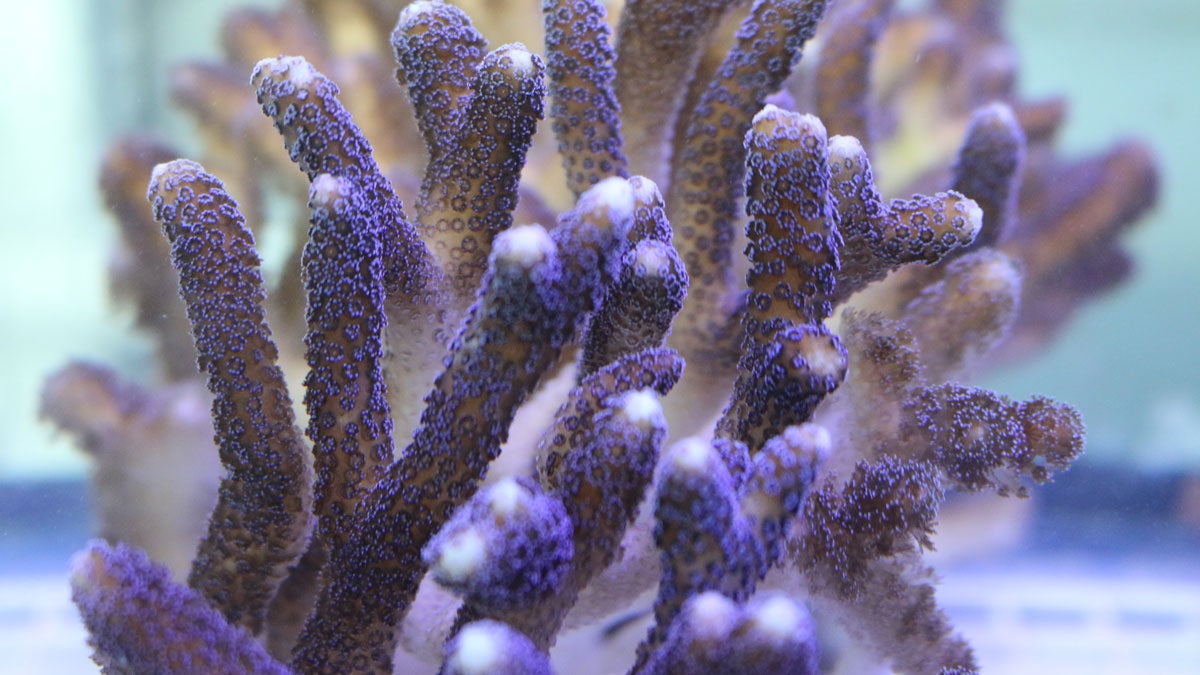New model suggests corals more resilient to acidifying oceans

Stylophora pistillata, a well-studied stony coral common in the Indo-Pacific. (Photo: Kevin Wyman/Rutgers University)
A new model for how corals build their stony reefs shows that ocean acidification, caused by climate change, may not affect corals’ ability to build their skeletons as much as previously thought.
The previously accepted model for coral building was a geologic one — scientists thought the coral organisms concentrated minerals out of ocean water and those minerals were spontaneously deposited to form the skeletons, which make up the reefs. Under this model, more acidic water would impair coral growth.
But a team out of Rutgers University is proposing a biological model. Using high-tech imaging, they found coral organisms make a protein, which drives formation of the mineral skeleton. The proteins themselves are acidic and can function in seawater with a lower pH.
“It’s not spontaneous. It occurs because the animal very deliberately makes the little crystals and glues them down to each other to make a rock,” said Paul Falkowski, a Rutgers researcher who worked on the project.
He said the new model is a big deal.
“If you go and you look around all the limestone you see everywhere, the pyramids, the limestones that are used in floors, the limestones that are used as building materials or skyscrapers, all of these are produced biologically, by marine organisms. And we didn’t have the vaguest idea until recently how they were produced,” Falkowski said.
The proteins are similar to those found in human bones and teeth. Falkowski said he’s now working with researchers to see if coral skeleton proteins can be used to help repair human bone injuries.
None of this means corals are safe from climate change. While the new model suggests they’re more resilient to acidifying seas, rising water temperatures are bleaching reefs and the organisms are struggling to deal with other changes in the oceans.
WHYY is your source for fact-based, in-depth journalism and information. As a nonprofit organization, we rely on financial support from readers like you. Please give today.

